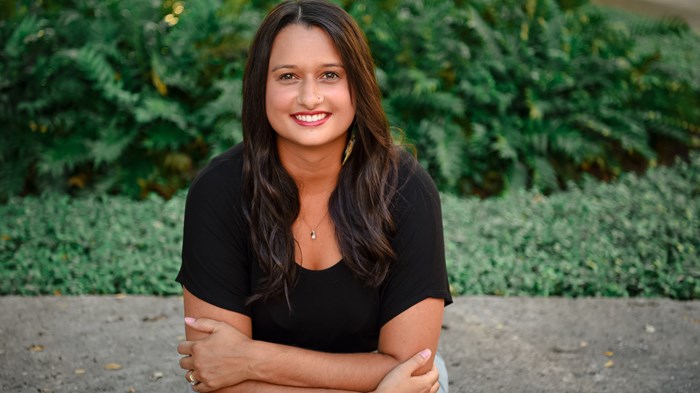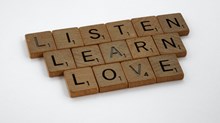How Small Changes Unlock Powerful Cross-Cultural Connections

Christian, don’t read this book unless you’re willing to examine your own cultural lens.
Michelle Ami Reyes is not the first Christian to write on race, but is a fresh voice for the growing bookshelf. In Becoming All Things: How Small Changes Lead to Lasting Connections Across Cultures (Zondervan, 2021), she tackles the thorny abstract ideas like code switching and cultural appropriation with one undergirding question: if Paul was willing to culturally accommodate others for the sake of the gospel, am I willing to join him? What does that look like, today?
When it comes to issues of race, conservatives often stiffen when ‘outside’ groups suggest the church has a race problem. One commentator described “a reassuring voice that's whispering, ‘The problems are all over there. Not in here.’”
The problem is very much in here. And if you’re drawn to this book in any way, you already sense this. “Connecting across cultures might feel a bit daunting, but you are reading this book because you want to keep trying,” Reyes comments in the foreword. I appreciate her grace. The book does bring up discomfort, another thing she addresses.
On the one hand, Reyes’ writing is like sitting down with a very patient friend who has chosen to reveal some real wounds. Growing up as an Indian-American in Minnesota, Reyes felt the pressure—and eventually became very adept—at meeting varying expectations in different contexts. Her stories (like stories you will hear from your own friends of color) reveal “deep and complicated narratives at work.”
On the other hand, this friend has pastoral and prophetic gifting. She can put incidents of microagression into context, within the larger story of the Christian church—partly by interpreting the cultural flexibility of Paul, the first church planter.
Crucially, using Paul’s method of ‘becoming all things’ creates openings for the gospel. Paul changed his dietary habits and even shaved his head according to whom he was with—no small gestures. He knew the groups around him and looked at life through their lens. Downplaying the importance of acknowledging things like privilege does not, by default, create more space for the gospel. In fact, Reyes says, it blocks evangelism.
But we have to look at both the macro and the micro. As a white reader myself, I found myself wondering things like:Nor is America the first place to watch cultural struggles play out. “By and large within human history, minority groups are more vulnerable,” Reyes writes, instructing us to pay attention to the way Paul emphasizes the relationship between the strong and the weak; “disregarding the needs of the weak is akin to diminishing the gospel.” Yikes.
-
Was that comment I made really necessary?
-
I wonder if I handled that relationship well?
-
What were my motives for displaying/wearing that cultural artifact in my home?
-
Did I listen what the new student said, or treat them as a curiosity?
-
Am I culturally appropriating by I wearing that/ eating that/ saying that?
-
What are my responsibilities—if any—when making a purchase from a minority-owned business? (I do think I have some, but you can decide for yourself after reading the book.)
Reyes has no desire to become the “culture police,” as she repeats several times. But this book is still a good place to start learning Unconscious Bias 101. It may, in fact, be the perfect resource for the ubiquitous white woman, asking in the comments or the DMs, for a resource to start on this inner journey.
While curating and editing The Better Samaritan on a daily basis, I have noticed two things relating to our theme of learning to good, better. One is the importance of listening, without assuming. The other is acknowledging the obvious need—when a victim is alone, trapped, hurting, or telling a story that no one seems to believe. In these instances, a clear choice emerges—the choice of whether or not to exhibit courage.
Becoming All Things asks us to live in a way that is courageously respectful of other cultures, taking time to understand them in their context. (That latter goes back to listening.) Reyes again: “God has been preparing people of color to help white people understand that white is a color and white people have a culture.”
Read this book, listen to Reyes, and then search your own heart. Make amends for anything that needs to be addressed in your life. Her words have certainly prompted me to examine my own motives more closely. Sometimes this means embracing discomfort: questioning conscious and unconscious choices (honestly and privately); admitting fault where necessary; even carrying on conversations with someone who doesn’t speak my language. Or maybe I need to accept hospitality, rather than insisting on a hosting role.)
Not only do white people have a culture, white is still the default culture, especially in spaces like this one. We have a long way to go, in the church, on this journey to authentic cross-cultural connection, as Paul would have it. What a tragic act I commit if I travel across the globe to hold a VBS, but neglect cross-cultural relationships with people in my own community… or worse, expect them to act exactly like me in order for me to love them.
We all use so many lenses to see the world—lenses shaped by our genetics, our upbringing, our zip code, our gender, our skin color. From where we sit, in this cultural moment, Reyes invites us to change out our lenses. Try to see the slogan Black Lives Matter, for example, as a Black man or woman sees it. See the way dominant culture might treat certain foods, clothes and music as consumables, instead of as precious heritage.
While Reyes often addresses the white reader directly, people of color may also find great comfort and resonance with her stories—or the Conclusion, which encourages us to see reconciliation work for the marathon that it is.
Becoming All Things: How Small Changes Lead to Lasting Connections Across Cultures (Zondervan; April 27, 2021) is now available wherever you buy your books. Follow Michelle Reyes on Twitter and Instagram.
Laura Finch edits this blog and produces the Better Samaritan podcast. She has worked at C-SPAN, the U.S. House of Representatives, and two state legislatures, and her writing has been published in various news outlets.
The Better Samaritan is a part of CT's
Blog Forum. Support the work of CT.
Subscribe and get one year free.
The views of the blogger do not necessarily reflect those of Christianity Today.






















